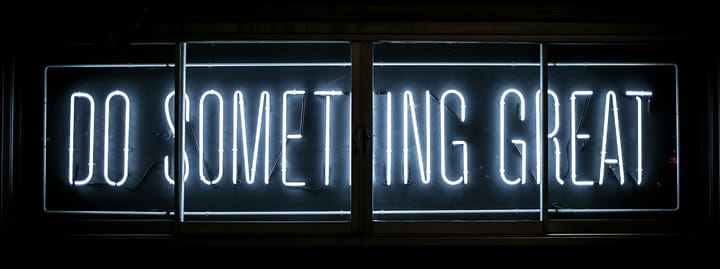Energy Management Guide: For People Who Hit 3 PM and Want to Hibernate
Stop managing time and start managing energy. Real strategies for when your brain feels like mush by lunch and coffee isn't cutting it anymore. No superhuman discipline required.

You know that feeling when it's 3 PM and your brain has officially left the building? When you're staring at your to-do list like it's written in ancient hieroglyphics, and your body feels like it's running on spiritual fumes?
Yeah, welcome to the energy management club. Population: everyone who's ever tried to be productive for more than four hours straight.
Here's what I've learned after years of trying to optimize my way out of afternoon crashes: Time management is overrated. Energy management is where the magic happens.
You can have all the productivity systems in the world, but if your energy is shot, you're just going to stare at your organized task list while your brain plays elevator music. Let's fix the energy problem first.
Why Energy Management Beats Time Management
Traditional advice: "Manage your time better! Use a calendar! Time-block everything!"
The problem: You can schedule 8 hours of deep work, but if you only have 3 hours of actual brain power, you're setting yourself up for a very organized failure.
Better approach: Work WITH your natural energy patterns instead of against them.
Think of energy like phone battery. You wouldn't expect your phone to run at 100% performance when it's at 15% battery. Why do we expect that from ourselves?
🔋 Understanding Your Energy System
The Four Types of Energy
1. Physical Energy
- How your body feels
- Affected by: sleep, food, movement, health
- Signs it's low: fatigue, tension, restlessness
2. Mental Energy
- Your brain's processing power
- Affected by: cognitive load, decisions, concentration
- Signs it's low: foggy thinking, procrastination, easy distraction
3. Emotional Energy
- Your capacity to deal with feelings and people
- Affected by: stress, relationships, conflict, change
- Signs it's low: irritability, overwhelm, people feeling draining
4. Spiritual Energy
- Your sense of purpose and motivation
- Affected by: meaning, values alignment, progress toward goals
- Signs it's low: apathy, "what's the point" feelings, going through motions
The key: All four types affect each other. Low physical energy tanks your mental energy. Emotional stress drains everything.
📊 Energy Audit: Know Your Patterns
Track for One Week (Don't Overthink It)
Every 2-3 hours, rate your energy 1-10:
- Morning: How do you feel when you wake up?
- Mid-morning: After your first tasks of the day
- Lunch: Before you eat
- Afternoon: The dreaded 2-4 PM window
- Evening: After work, before dinner
- Night: Before bed
Also note:
- What you ate/drank
- How much you slept
- What tasks you did
- Any stressful interactions
- Physical activity
You're looking for patterns, not perfection.
Common Energy Patterns
The Morning Lark:
- Peak energy: 6 AM - 11 AM
- Crash: 2 PM - 4 PM
- Second wind: 6 PM - 8 PM
The Night Owl:
- Slow start until 10 AM
- Peak energy: 11 AM - 2 PM and 7 PM - 10 PM
- Avoid: Important tasks before 10 AM
The Steady Eddie:
- Consistent moderate energy throughout the day
- Small dips after meals
- Benefits from regular breaks
The Rollercoaster:
- High highs and low lows
- Unpredictable patterns
- Needs more attention to external factors (stress, food, sleep)
Which one are you? Work with it, not against it.
⚡ Energy Boosters That Actually Work
Physical Energy Hacks
Micro-Movement (2 minutes):
- Desk stretches during calls
- Walk up and down stairs once
- Do wall push-ups in the bathroom
- Shoulder rolls while waiting for things to load
The Strategic Snack:
- Protein + fat (nuts, cheese, hard-boiled egg)
- Avoid sugar spikes unless you want to crash in 30 minutes
- Eat before you're starving, not after
Water, But Make It Interesting:
- Add lemon, cucumber, or mint
- Set phone reminders if you forget to drink water
- One glass when you feel tired (before reaching for more caffeine)
Power Nap Rules:
- 10-20 minutes max
- Before 3 PM
- Set an alarm (trust me on this)
- Don't feel guilty about it
Mental Energy Hacks
Decision Fatigue Prevention:
- Automate small choices (what to wear, what to eat for lunch)
- Batch similar tasks together
- Make important decisions during peak energy hours
Mental Load Dump:
- Brain dump everything on paper/digital notes
- Set up systems so you don't have to remember everything
- Use timers to prevent tasks from expanding infinitely
Focus Breaks:
- 25 minutes focused work, 5 minute break (classic Pomodoro)
- Look at something far away to rest your eyes
- Do something completely different during breaks (don't scroll social media)
Emotional Energy Hacks
Boundary Setting:
- Say no to energy vampires when possible
- Limit exposure to negative news/social media
- Schedule challenging conversations when you have emotional capacity
Positive Energy Input:
- Music that makes you feel good
- Content that inspires rather than depletes
- People who energize rather than drain you
Emotional Regulation:
- Name the feeling ("I'm frustrated about X")
- Ask: "Is this worth my energy right now?"
- Have go-to strategies for common emotional drains
🏗️ Building Your Energy Management System
Morning Energy Foundation
Not a perfect morning routine, just a better start:
Physical:
- Drink water before coffee
- Get some light on your face (window, outside, bright light)
- Move your body for 2-5 minutes
Mental:
- Check your energy level honestly
- Adjust your day's expectations accordingly
- Identify your Most Important Task (when energy is highest)
Emotional:
- Avoid immediately checking email/news
- Do something that makes you feel capable (make bed, tidy something)
- Set an intention for how you want to feel today
Energy-Based Task Scheduling
High Energy Tasks:
- Creative work
- Important decisions
- Challenging conversations
- Learning new things
- Problem-solving
Medium Energy Tasks:
- Routine work that requires focus
- Email management
- Planning and organizing
- Regular meetings
Low Energy Tasks:
- Administrative work
- Organizing files/spaces
- Reading for information (not analysis)
- Responding to non-urgent messages
Schedule your tasks based on your energy patterns, not just your calendar availability.
Energy Recovery Strategies
5-Minute Recovery:
- Step outside
- Listen to one favorite song
- Do breathing exercises
- Tidy one small area
15-Minute Recovery:
- Take a short walk
- Call someone who makes you laugh
- Do gentle stretching
- Journal about what's bothering you
30-Minute Recovery:
- Take a real break (no work thoughts)
- Do something creative for fun
- Exercise in a way that feels good
- Take a bath/shower
1-Hour Recovery:
- Nap if possible
- Go for a longer walk in nature
- Do a hobby you enjoy
- Spend time with people who energize you
🎯 Energy Management by Life Situation
For People With Irregular Schedules
- Focus on energy inputs you can control (sleep, food, movement)
- Create portable energy routines that work anywhere
- Build in recovery time after high-energy periods
For Parents
- Protect your morning energy when kids are sleeping
- Tag-team with partners for energy-intensive tasks
- Accept that some days you're just in survival mode
For People With Chronic Conditions
- Honor your body's signals more than arbitrary schedules
- Build extra recovery time into your planning
- Celebrate managing energy well, not just task completion
For Night Owls in Morning Jobs
- Negotiate flexible start times if possible
- Front-load easier tasks in the morning
- Save creative/important work for your natural peak times
🚫 Energy Drains to Minimize
Multitasking: Your brain isn't built for it. One thing at a time.
Perfectionism: "Good enough" saves massive amounts of mental energy.
Saying yes to everything: Every yes to something you don't want is a no to something you do want.
Constant availability: Your email doesn't need 24/7 monitoring.
Comparing yourself to others: Other people's energy patterns aren't your energy patterns.
All-or-nothing thinking: Some energy is better than no energy. Some progress is better than no progress.
Your Energy Management Starter Pack
Week 1: Assessment
- Track your energy patterns for 5-7 days
- Identify your peak energy times
- Notice what drains vs. energizes you
Week 2: One Small Change
- Schedule your Most Important Task during peak energy
- Try one energy booster that appealed to you
- Set a boundary around one energy drain
Week 3: Build Your System
- Create your simplified morning energy routine
- Plan your week around energy, not just time
- Experiment with recovery strategies
The Bottom Line
Energy management isn't about having endless energy (that's not human). It's about being strategic with the energy you have, working with your natural patterns instead of against them, and building systems that help you recover when you're running low.
You don't need superhuman discipline. You need to understand how your energy works and plan accordingly.
Some days you'll have tons of energy. Some days you'll have very little. Both are normal. The goal is to make the most of what you have and not burn yourself out trying to be productive when you're already running on empty.
Start with one small change. Energy compounds over time.
Ready to level up your energy management? Get in touch to share what's working for your energy patterns - everyone's system looks different, and sometimes talking through it helps clarify what might work for your specific situation.
Want to optimize your energy further? Check out our stress management guide to reduce energy drains, or explore focus tools for scattered brains to make the most of your mental energy.


